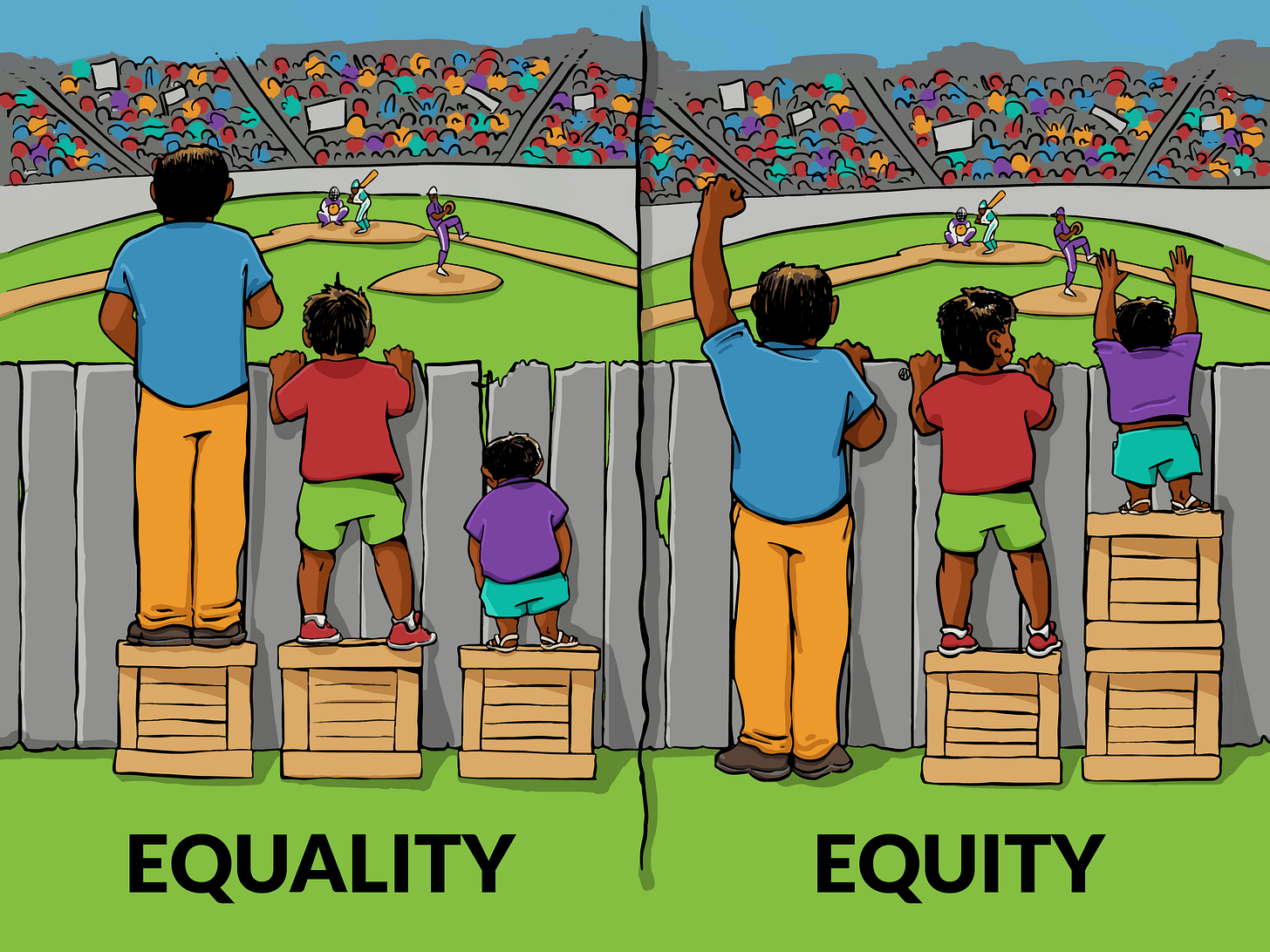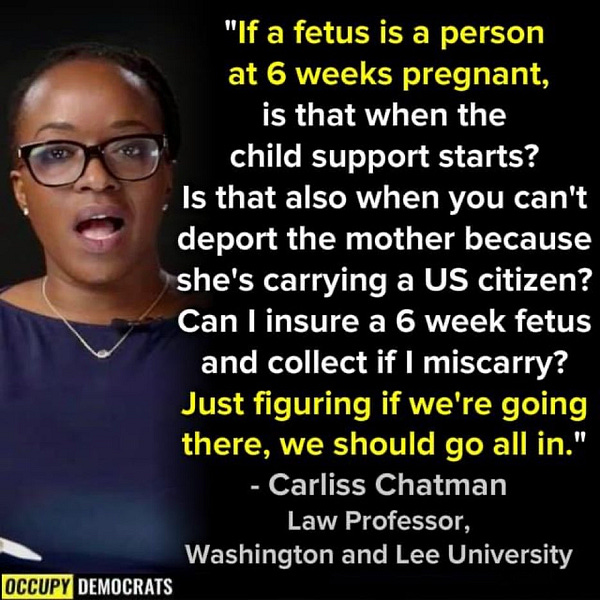1. Strange New Disrespect
Welp, the “strange new respect” I had garnered from certain corners of the progressive interwebs was bound to circle back around to “strange new WTF Tim” at some point. . . . And the fates collided somewhere between Kandahar and Kerrville to make this the fall of my new friends’ discontent.
Be it my matter-of-fact tweet about generally opposing abortion (we’ll get to that) or my stridency in lambasting the abandonment our friends in Afghanistan, I guess I’ve ruffled some feathers. (“Tim, you used to be so balanced,” they say. I did? Are you sure you have the right Tim?)
This has been a tad disorienting because I thought we had a nice little deal going, whereby my new friends and I could disagree, even passionately, on assorted policy matters—but we stayed friends because we agreed on the biggest things and the biggest threats and our little alliance is too important to our democracy for it to fray.
But I am starting to gather that not everyone actually signed on to that deal. It seems as if it was kinda like America’s deal with the Taliban, where we handed them the country and released 5,000 of their prisoners in exchange for them not attacking our military allies. Some of them thought that was a fair trade. Others said, “Thanks Ronald McDonald but we still have some infidels to slaughter over here.” Art of the deal! (Don’t try to figure out who is Trump and who is the Taliban in this analogy. It will end badly either way.)
To be perfectly transparent with you, the breakdown in our deal has left me feeling kind of blue.
On the one hand I get it. It’s tough out there in our grand digital battlefield, where disagreement can feel like desertion. Plus when your fellow soldier used to fight for the other side, there is always a flicker of doubt, a mistrust, a fear that they just might unsheathe their katana and slice your backside.
On the other hand, I have to say it is a little weird. I’m a freaking open wound over here, people! I’m getting dumped by old pals, spilling my guts over past mistakes, changing my views on some things, and getting all John-Boehner-teary-eyed for weeks after we slayed the coral dragon together. Yet some of y’all still are apparently concerned I might flip a switch and jump on Team DeSantis or something? Really?!
But while I think politics might have driven some of y’all over the cuckoo’s nest, I also think part of the breakdown is my fault. If after suffering through my podcasts and articles and newsletters and weekend MSNBC hits you are unpleasantly surprised by a take, then I probably haven’t explained my worldview as well as I thought. Which is a problem for a professional content man. (Or at least it’s a problem for an honest content man, since deception is actually a feature for the grifters.)
So here we go.
Abortion! Buckle up.
2. Purpose and Meaning
For someone like me who was schooled more in the combat of partisan politics than the philosophizing of it, it’s only natural that reconsidering one’s political team raises other more fundamental questions, too.
For example: What is it that I want from government, exactly?
The answer my brain keeps coming back to is in reference to something my guy Jeb Bush used to say about education. He wanted every child to have the opportunity to live a life of purpose and meaning. And that’s basically what I want from our government and society.
Obviously, a liberal (in the classical sense) and democratic government has other responsibilities, obligations, and limitations as well. But for the purpose of this newsletter, I want to focus on that North Star: A life of purpose and meaning for everyone.
There was a time when I considered myself more libertarian, and with that worldview I saw the objectives of government as being much more modest. The libertarian view wants to ensure basic individual rights; protect people from the tyranny of the state; and make certain that everyone who so chooses can drink their Big Gulp, and rip their cigs, and drive without a seatbelt at 90 miles an hour. That’s not a bad worldview, to be honest. There are worse systems than libertarianism. But my Howard Roark phase is in the rearview.
On the other hand there are progressives whose ambitions are much more grand. There is an en vogue push at the moment for “equity” which is best summed up in this viral cartoon, which shows how, in the progressive view, the government could give everyone an equal standing.
This is also not terrible. Again, there are worse systems. But the vision I prefer would be a cartoon where there is a hot-dog vendor and a player and a coach and a gay dad reading his Vogue in the bleachers and a tiger mom standing on a milk crate shouting at the field—in short, where everyone is finding meaning in their little slice of the human comedy, across the sands of time.
Inherent in this view is is a belief that each of these lives has intrinsic value. That we all have human dignity, no matter what we choose for our life.
This view recognizes that humans and governments have limitations. We can’t mandate meaning and purpose. We can’t force a person to change if they want to waste their life being embittered, or pilled-out, or lethargic. We can’t make choices for people or prevent them from eating the horse paste that is doing damage to their purpose. We sure as shit shouldn’t have some femboi dictator determining whose purpose is best served by picking and choosing which men are butch enough to appear on TV.
But there are certain things we can do—maybe not perfectly, but reasonably well—if we are willing to try.
We can provide opportunity, structure, rules, and assistance that give everyone the best chance to find meaning for themselves.
And this is where we get into debates over policy.
There are a lot of policy areas where you can reasonably debate the questions of dignity, meaning, and purpose.
Some people might think a $25-an-hour minimum wage is required for a person to live a life of purpose. Others might think it’s only $12. Still others would demand a universal basic income. Some might think it requires pulling oneself up by the bootstraps because purpose comes from work rather than handouts. Some of those opinions are more right than others. But people of good faith can argue different sides.
But the reason even our policy debates have broken down is because Donald Trump created a party that didn’t even pretend to care about dignity and purpose.
Trump saw Republican voters as customers who needed to be attracted to his brand. And if his customers wanted a brand identified with being as cruel as possible to other humans, then it was cruelty he would sell. Banning people from entry into the country if they are Muslim does not have a pro-human dignity side to the argument. Neither does separating parents from their children at the border. Or cheering on killer cops. Or grabbing women by the pussy against their will. Or trying to cancel the votes of people who live in a city with a lot of blacks.
Trump’s entire essence is in direct conflict with the notion that people have dignity. He is a dehumanizer to his core.
And that got to the heart of why I was so attracted to Joe Biden and why so many of Biden’s fans were attracted to my savage takedowns of the Bad Orangina. But it’s also what has us at odds this week
And oh by the way if you are in the market for savage takedowns of MAGA shills combined with honest and transparent analysis that doesn’t just tell you what you want to hear we’d love to have ya join us at Bulwark+ .
3. Afghanistan and Abortion
Briefly, on Afghanistan, since we’ve already been round and round on this one:
I simply cannot square leaving our Afghan partners and fellow Americans behind Taliban lines with a worldview that honors human dignity. To say about Americans who did not get out of the country in time, “Well Tim, they were warned,” strikes me as callous—and also inconsiderate of the fact that these people were caught off guard by the Taliban’s march through Kabul just as much as Biden was, and the same people who want to blame them for getting stuck want to give Biden a pass for it. As far as the Afghans, to cast aside those who put their lives on the line to help us over two decades because they didn’t have the right paperwork or didn’t book the right flight is ghoulish.
It probably goes without saying that you cannot live a life of purpose and meaning in a country where you must dress a certain way, or else you will get beaten, or raped, or killed. The lives of those we made promises to had value. And some of those people got royally screwed.
If your answer is simply that we can’t help everyone, I guess that’s true. But at minimum we ought to acknowledge this failure and reflect on whether the richest country in the world could have done better by the people we’ve left to this oppression.
As for abortion, how to address this question goes straight to the heart of my worldview.
Ensuring that people can live a life of purpose and meaning must begin by respecting and acknowledging the value of the mother’s life. It should go without saying that she deserves the same opportunity to live a purposeful life as anyone else. And too often the treatment of mothers by politicians who claim to be “pro-life” ignore or are actively hostile to this part of the equation.
But this worldview also recognizes that her baby’s life has value and purpose too. And within the moral architecture I have laid out, this is not a conflict that can be remediated by just erasing the value of one of those lives.
I understand that some people will bristle to hear me suggest this, given that I’m a man and a gay man at that, so this is not a conflict I have to contend with. I get it.
Plus this is a deeply personal issue. Part of the reason it’s so personal is because the stakes are high. And do you know why they’re so high? Because deep down we all know that there is something of existential value at stake.
So no, I am not a woman, nor will I try to pretend to be one or presume to tell any woman how they should think about this or what their opinion should be. But my vantage point is not just based on dogma or ephemera. I have sat next to and held the hands of women who were grappling with the toughest choice of their life: Deciding what to do with an unwanted pregnancy. Together we’ve looked at the ultrasound and seen the being that they might yet bring into the world. A real life. One that has value not because it might someday be Bill Gates or Beyoncé but because it’s a human like all the rest of us. It was a decision that was not just about one life but two. And while the weight of this decision fell on the mother, everyone in the room could feel it.
So if you believe that, as I do, the question then becomes, what should the government do about it?
I was struck by a progressive meme going around over the past few days. It was meant as a troll of the unconscionable Texas legislation, a bill so grotesque that taken to its logical conclusion it would let a rapist collect a bounty if his victim had an abortion at 7 weeks.
Here’s the pushback:
I don’t really think the Occupy Democrats want to trade a six-week abortion ban for offering child care, insurance, and citizenship to a fetus in the sixth week of development. I don’t take this to be a serious proposal. It’s Facebook-level philosophy.
But I looked at that meme and thought that even though the Occupy Democrats are just trying to own the cons, this position is . . . closer to where I’m at than what is being put forth by either major political party right now.
Because if you want to foster the meaning within every life you don’t do so with abortion bounties or letting thousands upon thousands of people die because you are in an imaginary Twitter fight with Anthony Fauci.
But you also don’t foster the meaning within every life by having unregulated abortion up to the moment before a child’s birth.
So that’s where we start having trade-offs. Does putting any sort of restrictions in place create a burden on women? Yes. But so does allowing infanticide. When two lives are entwined, there’s no perfectly fair way to protect the rights of both.
And that’s why it is incumbent upon all of the rest of us, especially men flapping our jaws, to mitigate such burdens to whatever degree possible. Sarah Quinlan laid out a series of wonderful suggestions for how we can make changes that support a culture of life and a culture where women are free to pursue lives of purpose and meaning. She cites studies that show many of the later-term abortions are related to domestic violence and depression. A society that genuinely values life should be striving to do everything in our power to address those problems. This isn’t some novel idea: The basic ante for living a life of meaning is protection from abuse.
And so, it seems to me that an approach that recognizes the child’s human dignity but also the woman’s, that builds a support system around them, both financial and societal, is at least the beginning of an answer. It’s a way to honor and cultivate the purpose and meaning in all of us.
It’s not a question with easy solutions. My wish and aspiration, if not my expectation, is that we can try to hash it out together, in a way that honors and is respectful of everyone who is trying their damnedest to get it right, while continuing the battle against those who aspire to strip the humanity from all of us.






